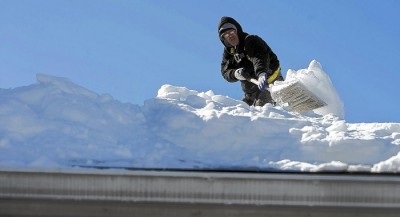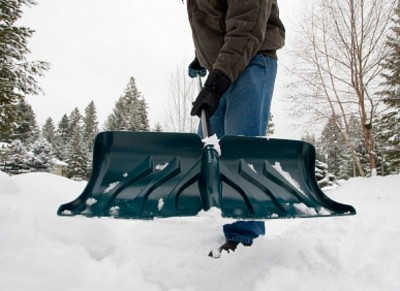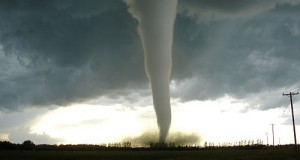When it comes to the winter season, homesteading and off-grid living become a challenge that only few people are equipped to handle.
From preparing throughout the summer and fall months to living from the work of your own hands, winter can be a brutal time if you are not well-prepared, both physically and mentally. Knowing what to keep in stock and how to stay alive should you find yourself snowed in or stuck outside can mean the difference between enjoying the season and struggling to survive.
If you are considering spending your winter with the bare necessities and sticking it out with only a few essential commodities, here are some ideas to help you make it through the cold winter months.
1. Shut off rooms you don’t use. And cover the spaces between the bottom of the door and the floor with old blankets if you feel any cold air forcing its way through. After checking the caulking around each opening and sealing any areas that have become weak, use standard plastic wrap and tape or shrink wrap plastic from your local supply store to cover up windows. By taking a lighter and tracing the seals of doors and windows, you can see the flame flicker near compromised seals. Also, cover any exposed and accessible pipes with insulated foam to keep them from bursting. The winter season is a great time to take care of these chores, since they are not only necessary but they give you tasks to accomplish when you start feeling the blues.
An Amazing Breakthrough In Compact Portable Backup Power — Easily Fits In Your Pocket Or Backpack!
2. Stockpile a month’s supply of food for each member of the family. You could get snowed in – and the situation will grow only worse if the power goes out. You can easily make soups, spaghetti sauces and individual, freezable meals for storage in quart-sized Ziplocs to quickly heat and eat throughout the winter. Ensure that the foods you purchase are high in vitamins and proteins to keep you healthy and give you a boost, should you find yourself sick or becoming depressed.
3. Store enough wood for at least two winters. More is better, and there’s nothing wrong with being prepared for extra-long winters. Even if you have an established method of heating, having a wood stove available in the garage in case of long-term power outages or unforeseen circumstances is a great idea and a valuable back-up plan.
4. Stay active and plan projects to work on throughout the season. Ski, hike or bike, and never let the cold keep you from doing what you want. Not only does staying active keep you healthy, it also keeps you mentally sharp and more physically prepared for the chores that you will be doing throughout the spring and summer months.
5. Check your emergency kit. Flashlights, batteries, candles, lighters and/or matches and canned foods all should be part of your kit. Try to keep your electronics charged as best as is possible and, if the power goes out, shut off unused cell phones and electronics to save battery for emergencies.
6. Prepare your car for survival. Blankets, lighters, flashlights, extra socks, basic tools, a first-aid kit, water and food should be in your car. You won’t always see those ice slicks on the road in time. Icy winter roads claim lives every season, so give yourself enough time to slow down and get where you’re headed safely – especially if you are in a rural area where cars rarely travel.
7. Stockpile gasoline and oil. It is advisable to stock up on gas for your generator and vehicles, as well as oil for lamps and cooking, should the power go out or you get snowed in and can’t make it to the store. Always keep these stockpiles locked away from children and animals and at a safe distance from your home. These liquids are also useful as fire-starters should you find yourself in an emergency situation requiring instant heat, without the luxury of time to find kindling or wait for a strong fire to build. In the case of hypothermia, instant fires can be the difference between life and death.
World’s Smallest Solar Generator … Priced So Low Anyone Can Afford It!
8. Use extreme caution during winter storms. Should you find yourself trapped in a storm, stay as dry as possible and keep your head and feet safe and warm. Easy kindling can be broken off from low-hanging branches. Also, twigs at the bottom of spruce or pines, and moss, especially horse hair and the beard lichens, make a great starter. When approaching trees, use a stick to test the depth of snow before getting too close, as wells can accumulate water and often trap victims in a quicksand-like slush that is nearly impossible to escape. Once a fire is started, use hands to rub circular motions over your chest, as the torso needs the most help staying warm. The movement will warm your arms enough to keep them functional while the friction will warm your chest and hands.
9. Layer with lightweight clothes and long, warm socks when outside. Multiple lightweight layers are preferable because they keep you comfortable, wick perspiration to keep you dry, and allow body heat to travel between layers, working as an insulator. Wool socks are also preferable to cotton as they keep in heat and draw away moisture, allowing your feet to be safer should the temperature drop suddenly or you find yourself stuck outside in a snow storm. When purchasing boots, find a trusted brand that will stand up to low negative temperatures. Reinforced toes and high tops will keep the heat in and protect toes and legs. Be sure and have goggles, face protection, a thick cap to trap heat from escaping your head, and trusted gloves, typically a warm-fingered pair and a thick mitten type to place over them. Never leave the house without gloves, hats and face coverings, just in case you become trapped while hiking or even traveling in your car.
Being properly prepared for any situation and knowing how to stay warm both indoors and out can provide a simple and enjoyable winter with tons of opportunities for fun and adventure.
What homesteading survival tips would you add? Share them in the section below:
 Off The Grid News Better Ideas For Off The Grid Living
Off The Grid News Better Ideas For Off The Grid Living






